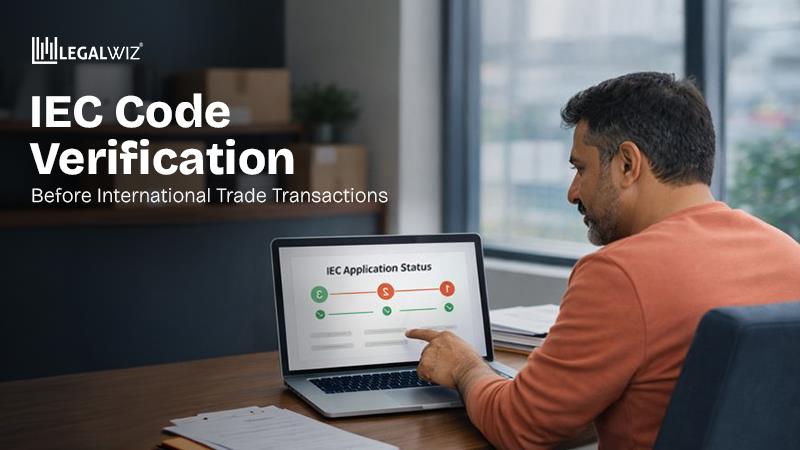Proxies as per Section 105 of the Companies Act 2013
Introduction
Section 105 of the Companies Act 2013 lets you appoint “proxies” for registered companies in India. What is proxy in company law you ask? well, a person is known as a ‘Proxy’ when s/he is appointed by a company member. His purpose is to take part in meetings and voting in his/her absence. This is very useful in situations where you cannot show up to the meeting but want your vote/opinion to be represented. Section 105 of the Companies Act 2013, quite resembles section 176 of the companies act 1956. In this article, we will learn in depth about what is proxy in company law, who can appoint a proxy under companies act 2013, etc.
Who is entitled to nominate a proxy?
As per Section 105 of Companies Act 2013, every member of the company who has the right to attend or vote at a meeting of the company shall possess the right to nominate another person on his behalf as a proxy (or a representative) to attend and to vote in the meeting. There is no prior desideratum for a proxy that he has to be a member of the company.
How to appoint a Proxy
You need to appoint proxy under companies act 2013 using form MGT 11. Section 105 of Companies Act, 2013 further also states that this appointment should be in writing. Also, the appointer or their authorised attorney must sign the instrument. If the appointer is a company or a corporate body, then its authorized signatory, or authorized attorney must sign the form or have the company seal. All of this is specified under Rule 19(3) of the Companies (Management and Administration) Rules, 2014.
The stipulated time duration for the deposit of proxy forms
You must lodge the instrument nominating the proxy under Companies Act 2013 with the company 48 hours before the meeting. Note that if the articles of a company state that they need more than 48 hours, then that will apply.
Things a Proxy cannot do
When it comes to giving views on the agenda by proxy for which the meeting is conducted preliminary, he is not entitled to such rights. He does not have a right to vote by show of hands. The proxy will not be included in a quorum. Under this law, a proxy does not have any right to speak at meetings. It has certain provisions by which the company could allow him to speak on a particular matter.
Things a Proxy can do
- A proxy is entitled to attend the meeting.
- A proxy possesses the right to vote on the poll. Under the given circumstances, a proxy would be eligible for the right to demand on the poll.
Limited Rights of a Proxy
As stated under Section 105 of Companies Act, 2013, any member of the organization with company 8 registration will not have any right to nominate any other person as his proxy. That is until and unless such a person also has a membership of the company. Once nominated as a proxy, he cannot act as a proxy for more than fifty members. He also cannot act as a proxy for so many members that he ends up possessing more than 10% of the total voting rights of the company.
A member who has more than 10% of the company’s total share capital with voting rights can nominate a single person as a proxy. Provided that such person cannot act as a proxy for any other member or shareholders.
How to remove a proxy?
The ‘member’ appointing a proxy under Section 105 of Companies Act, 2013 and ‘proxy’ share a principal and agent relationship. What this means is that the proxy is like a employee of the principal. And hence generally a principal or member can remove or revoke their proxy whenever they want to. However, any actions that the proxy takes before removal are still binding for the member. Additionally, in case a company’s articles of association impose specific restrictions regarding the removal of proxy, those restrictions will also apply.
Generally, to remove a proxy, the member who had appointed the proxy has to provide a handwritten & signed notice of the revocation to the company.
In conclusion
Section 105 of Companies Act, 2013 provides a vital right for all members of a company. That is, the right to appoint a proxy. However, from the above article we can see that appointing and removing a proxy is still quite a complex process. Also, you can only appoint proxies in specific situations. Keeping in mind how important being able to appoint proxy is, we believe that the gambit of who can appoint a proxy and when should be widened. This would make Section 105 of Companies Act, 2013 accessible for all.
Frequently Asked Questions
What does Section 105 of the Companies Act, 2013 state?
Section 105 allows a member entitled to attend and vote at a meeting to appoint another person (proxy) to attend and vote on their behalf.
Who is eligible to appoint a proxy?
Any member of a company who has the right to attend and vote at a meeting can appoint a proxy.
When can a member appoint a proxy?
A member can appoint a proxy to attend and vote at a meeting when they are unable to attend in person.
How is a proxy appointed?
The member needs to fill out the prescribed form of proxy, sign it, and submit it to the company within the stipulated time before the meeting.

Bhavika Rathi
Bhavika Rathi has completed Masters in Commerce, is pursuing Company Secretary and is associated with Legalwiz.in as Intern working with Operational Executive of the company. She is handling various MCA related compliance and doing Trademark Registration.







